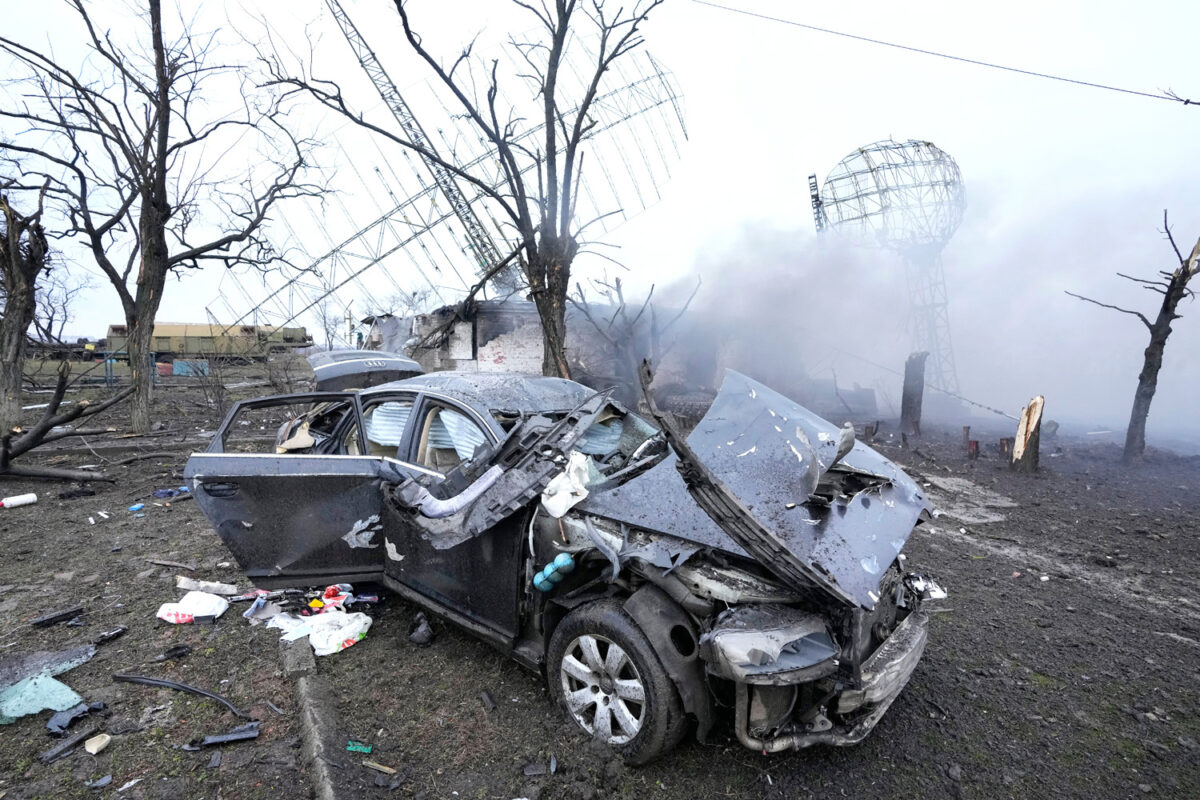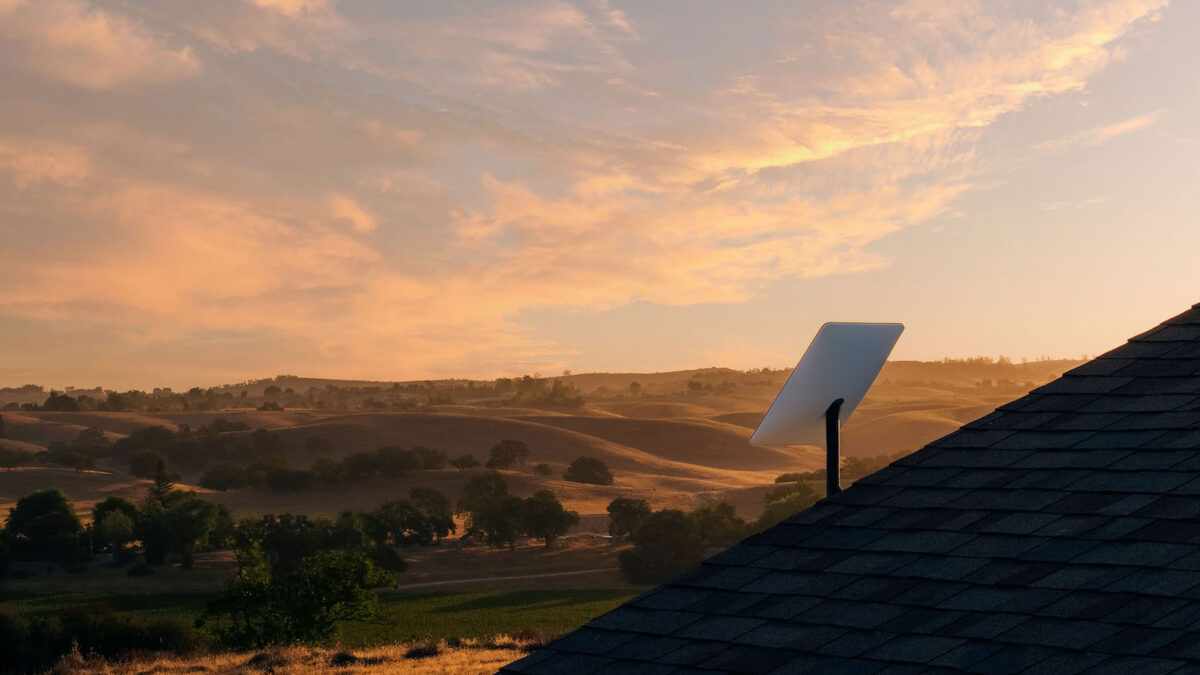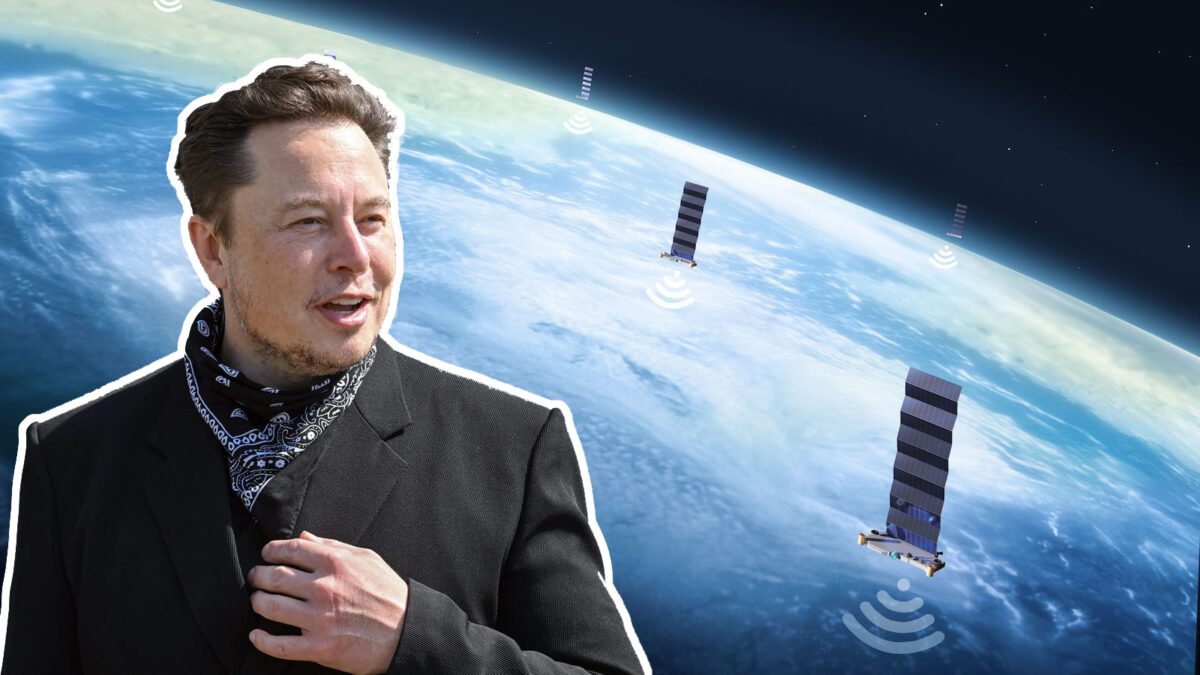It would be an understatement to call Elon Musk a controversial figure.
To some, the notoriously showy entrepreneur, who on any given day is the richest person on the planet, is a Steve Jobs-esque, almost messianic figure; a visionary who’s taking mankind to new and exciting places. To others, he’s a petulant man-child who needs to pay more tax and spend less time on social media.
But sometimes Musk’s penchant for social media – and making flippant decisions – can be a very good thing. Less than 12 hours after the Vice Prime Minister of Ukraine, Mykhailo Federov, called on Musk to provide Ukraine with Starlink stations on Twitter, Musk announced that the space-age service was available in the embattled country.
That’s an impressive turnaround and a praise-worthy humanitarian decision on Musk’s part… But as some netizens have pointed out, it’s a move that underlines how ineffective the US government has been in addressing Russia’s shocking invasion of Ukraine.
Starlink service is now active in Ukraine. More terminals en route.
— Elon Musk (@elonmusk) February 26, 2022
Firstly, it’s worth explaining what Starlink actually is and why Federov was so keen to have it. Starlink is a satellite internet constellation operated by SpaceX – the groundbreaking aerospace firm Musk founded and serves as the CEO of – that provides satellite Internet access coverage to most of the Earth.
Satellite internet has been around for decades but hasn’t really caught on because it’s relatively expensive, laggy and relatively vulnerable to interference. Starlink, however, is much cheaper and faster than previous satellite internet systems.
RELATED: TAG Heuer’s Latest Connected Smart Watch Is A Game-Changer
The big advantage of satellite internet is that it’s not dependent on terrestrial infrastructures such as optical fibre or telephone networks. Starlink says the service is ideally suited for areas where connectivity has been unreliable or completely unavailable, such as rural or remote communities. It can also be deployed quickly in disaster situations… Or war zones.
As Russia is targeting Ukrainian infrastructure as part of its invasion, Starlink could help keep Ukrainians connected to the Internet even if Russia cuts off or destroys Ukraine’s terrestrial network infrastructure. Russia has also been targeting Ukraine with cyberattacks, including distributed denial of service (DDoS) attacks, which Starlink could also prove beneficial in combatting.
According to internet monitor and cybersecurity watchdog NetBlocks, Internet service has already been disrupted in several cities throughout Ukraine, including Kyiv, Mariupol, Kharkiv and Kherson.

Some may argue that Ukraine needs troops on the ground and military equipment more than it needs Internet access, but in this incredibly inter-connected world we live in, the Internet is an invaluable lifeline to the rest of the world. It’s a very good thing Musk’s doing.
Indeed, he’s making the US government look somewhat inept. As one commenter on a Fox Business article has put it, “over $700 billion military budget each year, yet only a private company is able to provide a solution to an allied country under siege enabling continued access to this vital infrastructure capacity.”
“Makes you wonder how much of that money actually goes toward advancing our capabilities vs political kickbacks to those on both sides of the aisle.”
RELATED: Australia’s New Electric Car Strategy Is Embarrassingly Bad
Other commenters have similar praise for Musk. “Elon Musk seems to be the only billionaire that actually wants to help the planet rather than rule it,” one suggests. Another added: “Musk knows how to get things done, politicians will waste time in the UN voting against a country that has a veto, just so it looks like they are doing something.”

While the situation in Ukraine is obviously incredibly complex, one does have to question how effective the measures the US and its allies have employed against Russia have been. In the short term, at least, it seems that sanctions haven’t deterred Russia from continuing their invasion, and the scant military support offered to Ukraine – mostly in the form of anti-tank and materiel weapons – is clearly not enough.
In comparison, Musk’s decisive and prompt support of Ukraine demonstrates a degree of conviction that some Western governments lack, such as Germany and Italy, who have been hemming and hawing about cutting off Russia’s access to financial mechanisms such as the SWIFT banking messaging network.
Fingers crossed that the US government – and other Western firms – offer more substantial support to Ukraine as soon as possible.
UPDATE 28/2 5:45 pm AEDT: it’s not actually clear when Starlink will actually be available in Ukraine, as American technology journalist Lora Kolodny reports on Twitter. Musk does have a history of empty promises…
I asked SpaceX head of comms this weekend on details about Starlink in Ukraine. Didn’t hear back. Still not clear on what’s being provided to whom and how it will function amid the conflict. Will report on it if I get answers from the co. (or employees) obviously.
— Lora Kolodny (@lorakolodny) February 28, 2022
UPDATE 1/3 9:50 am AEDT: looks like it wasn’t just hot air. Federov shared a photo on Twitter a few hours ago showing that a truckload of Starlink kits had arrived in Ukraine. Nicely done.
Federov has also thanked Meta (Facebook’s parent company) for “shut[ting] down Russian lies” and has called upon Google “to deplatform Russian state media in the strongest possible terms”.
You are most welcome
— Elon Musk (@elonmusk) February 28, 2022
UPDATE 1/3 1:45 pm AEDT: Musk has also made Tesla’s Supercharger network completely free in parts of Europe affected by the Russian invasion of Ukraine.
Starting from Monday, the electric vehicle (EV) maker announced it would allow both Tesla and non-Tesla cars to charge for free from its Supercharger network in parts of Poland, Slovakia and Hungary to assist EV owners with reaching a safe location, The Driven reports.
Read Next
